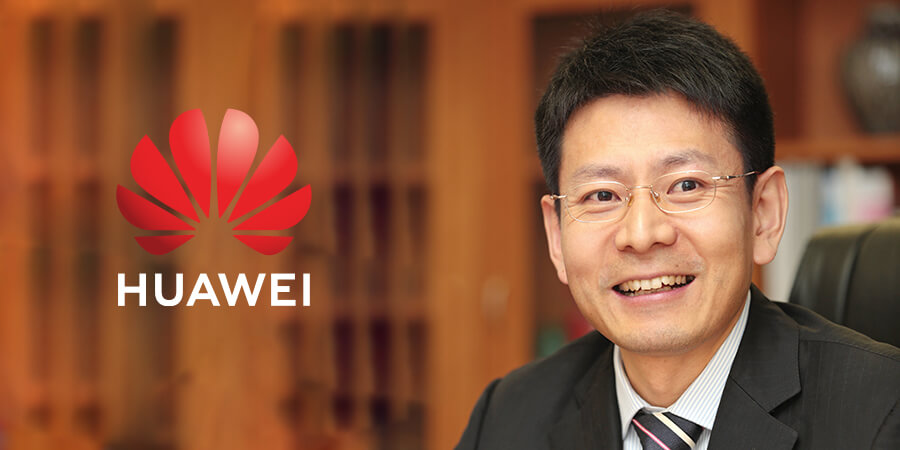By Shunli Wang, Vice President of Huawei Middle East
In this digital era, ICT, a leading industry in the digital economy, faces some challenges in accelerating digital transformation. As the industry transforms, the key to maintaining rapid development, seizing opportunities and making progress in the new era is treating talent as the foundation of digital economies.
A recent report by the World Bank indicates that fully digitalizing the economy could lead to a rise in GDP per capita of at least 46% over 30 years, or in dollar terms, a long-term gain of at least $1.6 trillion. During the first year, this GDP per capita gain for the MENA region would be almost $300 billion, the report estimates.
In this digital economy landscape, ICT skills are vital to support long-term national plans for economic expansion and diversification. This calls for a long-term strategy to equip the youth with the capacity to make a difference while contributing to the socioeconomic growth of nations. The Organization for Economic Cooperation and Development (OECD) cites digital literacy as a fundamental competency for future education.
Evolving this talent development model will require a shift in how we approach education. We must recognize the talent gaps that exist between classroom education and industry needs. Technology companies, which typically work with all stakeholders, are in an ideal position to help bridge the institutions that produce talent and the organizations that need them.
Huawei was among the first global tech companies to leverage its technology and expertise to help plug the talent gap, launching what is today its flagship CSR initiative, Seeds for the Future, in 2008. The program supports the development of local ICT talent by enhancing international knowledge transfer amongst students, promoting a greater understanding of and interest in the technology field and encouraging participation in the region's growing digital economy.
The program is more relevant than ever. Organizations are reluctant to adopt next-generation technologies such as AI, cloud, IoT, Big Data, 5G, etc., at scale without a clear picture of the digital skills landscape as the world faces a severe tech talent crunch. In a 2022 survey by PwC, 75% of Middle East business leaders said the shortage of essential digital skills is a business threat.
Huawei launched the 2022 edition of the Seeds for the Future in August across the region. During an intensive eight-day program, participants received entry-level and advanced courses on key technologies, including 5G, cloud computing and A.I. As a platform for also sharing cultural experiences, participants additionally had an opportunity to experience virtual tours of Chinese scenic spots or fast-growing companies. The experience included a glimpse at Huawei's history and technological developments, including a virtual exploration of Huawei exhibition halls, campus and stores. Huawei experts, entrepreneurs, professors and scientists were also on hand to share perspectives on a wide range of topics, from cybersecurity to the aerospace industry. The program culminated in a competition where young regional innovators vied for prizes with the other technological projects created by their global peers.
Technology's true success is measured by its impact on society. This awareness inspired Huawei’s Tech4Good global competition, held alongside Seeds for the Future again this year, inviting young people to explore how digital technologies can address social issues. Through group projects, Tech4Good wants to increase social entrepreneurship, build problem-solving and leadership skills through teamwork and deepen a sense of social responsibility. As of August 2022, the Seeds for the Future program has been implemented in 137 countries and regions, reaching more than 12,413 students from over 500 universities and gaining endorsement from more than 189 heads of state and high-level government officials globally.
Seeds for the Future has garnered support from the highest echelons of governments across the region. In Oman, for instance, the 2022 Seeds for the Future was launched in partnership with the Ministry of Higher Education, Scientific Research and Innovation, with the Minister, H.E. Prof. Rahma bint Ibrahim Al Mahrooqi, in attendance; and in Bahrain, the 2022 Seeds for the Future was launched under the patronage of the Ministry of Youth and Sport Affairs and Ministry of Labor.
ICT talent demand continues to rise, and more skills development efforts are required. Besides Seeds for the Future, Huawei has set up 163 Huawei ICT Academies in the region through which the company holds the annual Huawei ICT Competition. Additionally, over 17,000 students have obtained Huawei certification. Overall, Huawei has trained over 120,000 ICT talents for the Middle East.
Today's trainees are tomorrow's public sector, technology and business leaders. Investing in their growth now is the only path to a prosperous future. However, a strong talent ecosystem requires joint effort from governments, industries, educational institutions and so on. As a global technology provider, therefore, we must advocate for an open, shared ICT talent ecosystem that benefits all parties. We will continue to invest in ICT talent development in the region, and we will continue to support partners, customers and nations to help build a fully connected, intelligent world.











